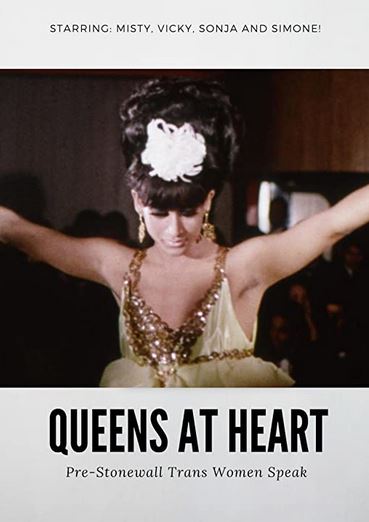Release Year: 2020
Synopsis:
In a pivotal moment for both cinema and social justice, Sam Feder's documentary Disclosure offers an unprecedented examination of transgender depictions in film and television. With the participation of influential trans figures like Laverne Cox, Lilly Wachowski, Yance Ford, and Chaz Bono, the film reveals how Hollywood not only reflects but also shapes societal anxieties about gender. By exploring a rich tapestry of cinematic history, Disclosure provides critical insights into the complexities of trans representation, ultimately urging viewers to rethink their perceptions and assumptions.
At its core, Disclosure confronts the long-standing, often problematic representations of transgender people in media. From early films like A Florida Enchantment (1914) to contemporary works such as Pose, the documentary showcases a range of portrayals that oscillate between dehumanizing and empowering.
Through the voices of trans creatives and activists, the film dissects iconic moments in media history, revealing how these narratives have shaped public understanding of transgender identities.
For instance, the film critically examines Dog Day Afternoon, which presents a transgender character as part of a dramatic narrative that often sidesteps genuine understanding. Similarly, The Crying Game and Boys Don’t Cry are unpacked to highlight the ways in which they reinforce stereotypes while also contributing to a broader dialogue about gender identity. This historical analysis underscores a persistent theme: the portrayal of trans individuals often reflects societal fears and misconceptions rather than authentic experiences.
Disclosure posits that media representations serve both as a mirror and a mold for societal beliefs about gender. The film makes a compelling case that for the majority of people—80% of whom have never met a transgender person—their understanding of trans issues is largely shaped by what they see on screen. This reality raises critical questions about the responsibility of filmmakers and writers in shaping narratives that can either uplift or marginalize.
Through its examination of familiar films and television shows, Disclosure reveals the deep-seated stereotypes and tropes that continue to inform societal attitudes. The documentary illustrates how these portrayals impact everything from dating dynamics to policy decisions, such as school regulations and national legislation regarding transgender rights. By unpacking these narratives, Disclosure challenges viewers to recognize the power of representation and its far-reaching implications.
Despite the exhilarating increase in visibility for transgender individuals, Disclosure does not shy away from the darker realities faced by the community. The film contextualizes current events—such as the surge of anti-trans legislation, including bathroom bills and military bans—as manifestations of the same fears and misconceptions perpetuated by media representations.
By drawing connections between historical portrayals and contemporary challenges, Disclosure invites viewers to reflect on how societal narratives can foster environments of hostility or acceptance. The documentary serves as a poignant reminder that the fight for transgender rights is not only a matter of visibility but also one of survival in the face of ongoing violence and discrimination.
At its heart, Disclosure is a call to action. By reframing familiar cinematic moments and dissecting their implications, Feder encourages audiences to confront unexamined assumptions about gender and identity. The film stands as a manifestation of a broader cultural moment—one where social movements are in direct conversation with Hollywood, advocating for more accurate and diverse representations of trans lives.
Moreover, Disclosure serves as an educational tool aimed at the vast audience that may not have direct experience with transgender individuals. By illuminating the complexities of trans narratives and the detrimental impact of harmful stereotypes, the documentary seeks to foster empathy and understanding.
A Path Forward
In a time marked by both progress and setbacks, Disclosure is a vital contribution to the discourse on trans representation. It challenges viewers to reconsider their perceptions and to recognize the power of media in shaping societal beliefs. As the documentary illustrates, the journey toward authentic representation is ongoing, and every narrative has the potential to influence how trans lives are perceived and understood.
Through its compelling exploration of the intersection between media and identity, Disclosure not only sheds light on the past but also paves the way for a more inclusive and compassionate future. As we confront the complexities of gender in the modern world, the insights offered by Feder and the featured trans thinkers resonate with urgency, reminding us that representation matters and that the stories we tell shape the reality we live in.
Image credits: YouTube
My Interview with Alexandra Billings: Heroines of My Life
My Interview with Bianca Leigh: Heroines of My Life
My Interview with Mj Rodriguez: Heroines of My Life






.jpg)

.jpg)
.jpg)















Post a Comment